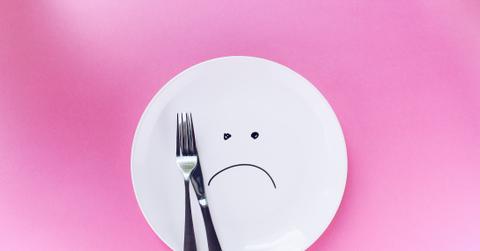
photo credit: thought catalog on unsplash.com
Sure, Keto Diets Work, but are They Safe?
By Jamie RolloAug. 21 2019, Published 9:05 p.m. ET
Everyone and their mother talks about keto diets. Celebrities and dietitians alike swear by this low-carb, rapid-result diet plan. Typical “ketogenic diets” restrict carb and protein intake, limiting the foods one can actually consume. Supporters of the diet believe it works wonders aiding in weight loss and Type 2 diabetes. But, is it as safe as people let on? Doctors say no.
What do keto diets even entail? Most plans suggest limiting your carb intake to less than 10% of your daily calorie intake and limiting protein consumption to 20%. Due to the strict limits on carbs and protein, your body diminishes glucose which burns fat quickly. To make up for the lost fuel, your body produces “ketones.” Because the diet can enable glucose and fat levels to fall quickly, some keto advocates believe it can help blood sugar levels in those with Type 2 diabetes.
While the keto diet may seem nice and dandy, many doctors are worried about its longer lasting effects and lack of research. Since the diet requires one to cut out carbs and proteins significantly, it leaves little room for other healthy foods and nutrients. In fact, some doctors believe that it leads people to eat more foods that are high in saturated fats, which can lead to heart disease.
Additionally, those on a keto diet are restricted from superfoods such as beans, fruits, starchy vegetables, and whole grains. As for the rapid weight loss, doctors believe it to be no more effective than any other strict diet. Once you decide to introduce carbs again, the weight will come back and fast.
According to The New York Times, the keto diet is a very polarizing topic among health professionals, doctors, and dietitians. They reported that in July, three doctors wrote and published a cautionary essay on keto diets for JAMA Internal Medicine and it sparked much conversation and controversy. In the essay, they urged the public to not praise keto diets as a fix for patients who are obese or have diabetes because there is not enough evidence to prove that it is effective and safe for those purposes.
“The greatest risk, however, of the ketogenic diet may be the one most overlooked: the opportunity cost of not eating high-fiber, unrefined carbohydrates,” they wrote. “Whole grains, fruits and legumes are some of the most health-promoting foods on the planet. They are not responsible for the epidemics of Type 2 diabetes, and their avoidance may do harm.”
Mainly, the doctors believe that keto diets can put people at risk for heart disease and that should not be as overlooked as it is. Also, the diet plan can have side effects such as constipation, fatigue, and occasionally increased LDL cholesterol particles. If a keto diet is something you’re interested in, consult your doctor to see if it’s safe for you before committing to it.

